The Science of Pre-Workout Supplements
The hype around nutritional supplements is well known. Even if you’ve been taking a few staples for some time, you may wonder if they are worth the investment. If you don’t always notice a difference, are they still affecting change on a cellular level? The right supplements can help you reach your nutritional, performance, and aesthetic goals, but choosing supplements worth the money can be confusing. Here’s a look at the science behind pre-workout supplements and how they enhance performance.
How pre-workout supplements work
Our body uses three primary sources of fuel for energy: carbohydrates, fat, and protein. Carbohydrates, stored in the liver and skeletal muscles as glycogen, provide the most efficient energy source during exercise. Glycogen is easily converted into glucose, providing immediate energy to fuel the brain, nervous system, and muscles during exercise. When you ‘hit that wall’ during vigorous activity, that is, the depletion of glycogen stores, and the body begins to use fat for fuel, especially during low to moderate exercise.
Pre-workout supplements are any supplement, usually in powder form, formulated to boost endurance and energy levels during your workout. They provide the body with a good source of carbohydrates and protein for fuel and are typically taken 15 to 30 minutes before exercise or during training.
Common pre-workout supplements
Carbohydrates
What it is: A macronutrient found in food, sugar, starches, and fibre are all carbohydrates.
How it helps: Carbohydrates are a common pre-workout supplement ingredient to replenish your body’s go-to energy source. Increasing glycogen stores helps improve energy availability and performance.
Dose: Take 30 to 60 grams per hour of endurance activity. Fuel up for tough workouts with approximately 15 grams of carbohydrates, which you can get from half a banana or a slice of bread with jam if you choose to go the natural food route.
Beta-alanine
What it is: An amino acid produced in the liver and found in fish, poultry, and meat.
How it helps: Improves exercise performance (particularly high-intensity interval training) and helps to combat muscle fatigue caused by lactic acid production.
Dose: 4 to 6 grams per day for 2 to 4 weeks. A common side-effect is a skin-tingling sensation because beta-alanine is combined with baking soda. Take smaller doses or try a sustained-release formula instead of a rapid-release. Consult with a healthcare practitioner before beginning supplementation.
Caffeine
What it is: A stimulant that activates the brain and nervous system.
How it helps: Caffeine benefits performance for short-term high-intensity exercise and endurance activities. It increases endorphin release and improves muscular function and alertness.
Dose: 3 to 6 milligrams of caffeine per kilogram of body weight, consumed an hour before exercise. Caffeine has mainly been studied on high-performance athletes, so consult your healthcare practitioner before use. You want to be sure any supplements you take are safe for one dose.
Creatine
What it is: An amino acid found in the brain and muscles that help muscles create energy during high-intensity exercise.
How it helps: Increases the muscle availability of creatine, enhancing exercise capacity and increasing training volume leading to gains in muscle mass, strength, and power. This supplement is primarily recommended for weight training, sports with intermittent sprinting, and high-intensity exercises, such as soccer and basketball.
Dose: Start with a quantity of 5 grams of creatine monohydrate four times a day for five to seven days to increase muscle creatine stores, and then maintain by having 3 to 5 grams per day. Consult your healthcare practitioner before taking creatine, as it may not be suitable for those with kidney issues, as it can increase total body water and cause weight gain.
Health Canada regulates natural health products, such as vitamins, minerals, and amino acids, under the Natural Health Products Regulation, ensuring products are safe, efficient, and of high quality so you can make informed health choices. Remember that nutritional supplements cannot replace our natural fuel (food) but enhance a healthy diet for added performance when needed. A diet well-balanced in carbohydrates (whole grains, fruits, vegetables, and legumes), protein (lean meats and fish), and water is sufficient to fuel the body for moderate amounts of exercise, such as an hour of jogging or cycling.
It is always best to research and consult a healthcare practitioner if necessary. Read the labels to know what you’re buying, and avoid supplements with added thickeners, sugars, and artificial flavouring. Staying informed is the best way to keep on top of the latest research and do what is best for you.





